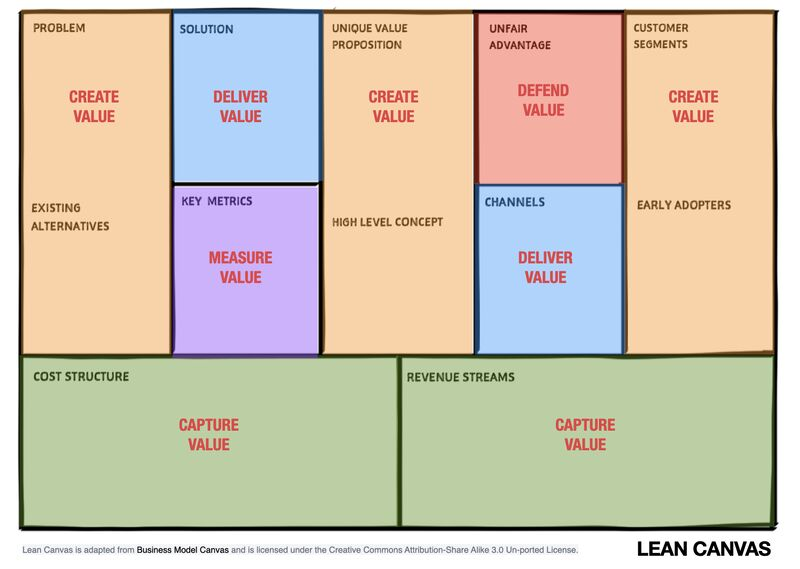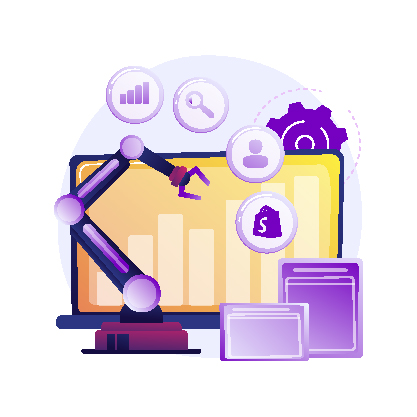The Power of Lean Canvas

In the journey of entrepreneurship, ideas often start as sparks of inspiration, but transforming them into viable businesses requires a structured approach. Traditional methods like extensive business plans can be cumbersome and impractical, especially for dynamic and uncertain environments typical of high-tech startups.
Enter the Lean Canvas — a powerful tool designed to articulate and iterate on business ideas efficiently. Developed by Ash Maurya, the Lean Canvas serves as a lightweight alternative to traditional business plans, focusing on reducing uncertainty and de-risking new ventures through rapid iteration and evidence-building.
Why Lean Canvas Over Traditional Business Plans?
Traditional business plans, with their extensive pages and detailed financial projections, often provide a false sense of precision. They assume predictability in markets that are inherently unpredictable, leading to potentially misleading projections and a high margin of error. This approach may work well for businesses with well-defined market demands and predictable operations, such as retail or service-oriented businesses.
However, for tech startups and businesses leveraging asymmetric advantages, the inputs and outputs are less certain. These ventures require a methodology that embraces uncertainty and facilitates quick adaptation based on real evidence rather than speculative projections.
The Lean Canvas Approach

The Lean Canvas consists of a simple nine-box worksheet that prompts entrepreneurs to articulate key aspects of their business model in a concise and visual manner. Unlike traditional plans that can be rigid and time-consuming, the Lean Canvas encourages flexibility and iterative refinement. Here’s a breakdown of the key components typically included in a Lean Canvas:
1. Problem: What customer problems are you trying to solve?
2. Customer Segments: Who are your target customers?
3. Unique Value Proposition: What makes your solution unique and compelling?
4. Solution: What product or service are you offering to solve the problem?
5. Channels: How will you reach and acquire customers?
6. Revenue Streams: How will your business generate income?
7. Cost Structure: What are the key costs and expenses?
8. Key Metrics: What are the critical indicators of success?
9. Unfair Advantage: What gives your business a competitive edge?
Each section of the Lean Canvas is designed to be filled iteratively, allowing entrepreneurs to validate assumptions, gather feedback, and adjust their strategies based on real-world evidence. This iterative process of hypothesis testing and refinement is crucial for reducing risks and increasing the chances of success in volatile markets.
Benefits of Using Lean Canvas
1. Clarity and Focus: By forcing entrepreneurs to articulate their business model succinctly, the Lean Canvas helps maintain clarity and focus on essential elements.
2. Iterative Improvement: Facilitates rapid iteration and adjustment based on feedback and new insights, minimizing wasted time and resources on ineffective strategies.
3. Reduced Risk: By prioritizing evidence over speculation, the Lean Canvas methodically reduces risks associated with market uncertainty and evolving customer needs.
4. Adaptability: Unlike rigid business plans, the Lean Canvas allows for quick adaptation to changing market conditions and emerging opportunities.
In conclusion, while traditional business plans have their place, they may not always be suitable for early-stage ventures, particularly in high-tech and innovative sectors. The Lean Canvas offers a more agile and practical approach, focusing on learning, adaptation, and evidence-based decision-making. By embracing uncertainty and leveraging rapid iteration, entrepreneurs can navigate the complexities of startup life with greater confidence and clarity.
For anyone looking to launch a new venture or refine an existing one, mastering the Lean Canvas could be the key to unlocking sustainable growth and competitive advantage in today’s fast-paced business landscape.
Ready to transform your ideas into action? Start by crafting your Lean Canvas today and embark on a journey of entrepreneurial discovery and success.
Latest
Subscribe To Our Newsletter
We’ll send you the best of our stories and no spam! Promise!




